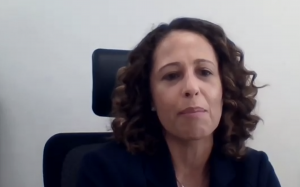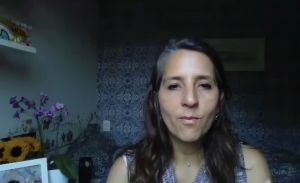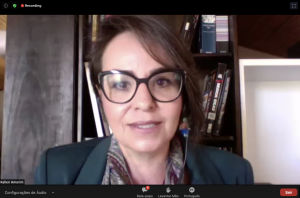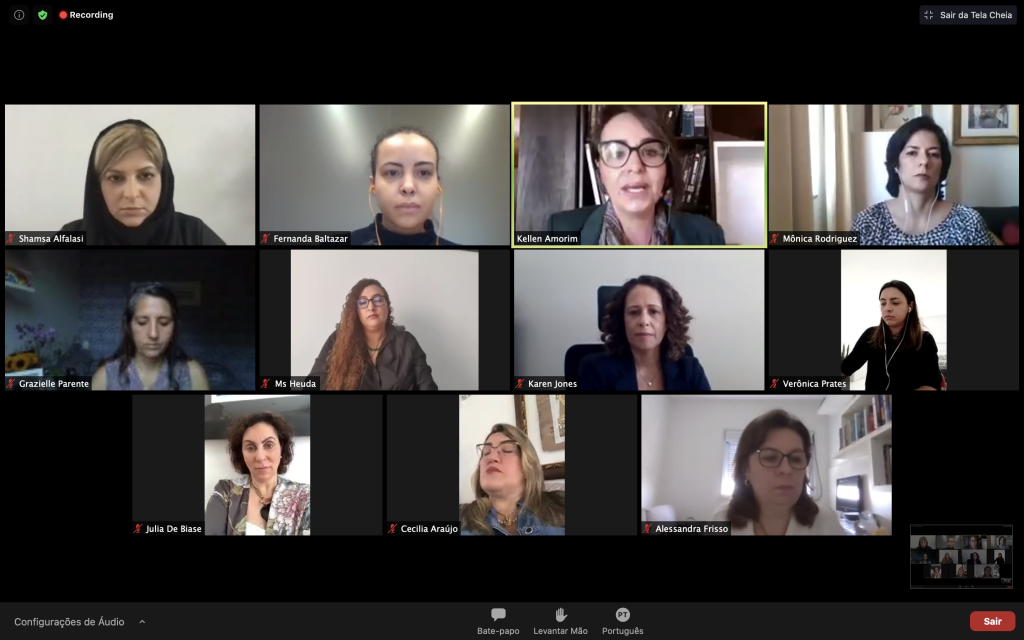São Paulo – Webinar “Challenges and opportunities for women doing business with the Arab countries” was hosted this Wednesday (16) by WAHI – Women Who Inspire, the women’s committee of the Arab Brazilian Chamber of Commerce (ABCC) alongside the Women Inside Trade (WIT) group. The featured women argue that there are things to be done before they are on an equal footing with men when it comes to doing business. However, a lot has been achieved in terms of equality and recognition in North Africa and the Middle East.

The head of operations at the Middle East and North Africa Office of the Brazilian Trade and Investment Promotion Agency (Apex-Brasil), Karen Jones, said that while the 22 countries that comprise the Arab world have shared features such as language, they also differ in many respects.
“In the United Arab Emirates there is a great number of expatriates and Emiratis alike who work and are very successful. It’s a pleasure to see them succeed. Even in Saudi Arabia, which is more conservative, we can see advances, and that’s beneficial to the country’s development,” said the Dubai-based Jones, who’s going on 20 years of living in the Middle East. “There are challenges, and they require understanding the business culture, speaking eye-to-eye and being close with people. And Brazil is very well positioned in that region.”

Brazilian Food Industry Association (ABIA) board chairwoman Grazielle Parenti said opportunities are available for women to not only claim their space in business but be business leaders as well. “I’ve always been interested in Arab culture, and once I became familiar with I was really surprised. I have met amazing women. I have seen them be uncomfortable being in leadership positions, but I can tell that things are not that different here in Brazil,” she compared, adding that it’s a good thing for there to be more and more female leaders. “There’s an affinity when it’s time to negotiate, and there are more and more women doing negotiation. There’s a magical line that binds us.”
In addition to the presence of female business leaders in the Arab countries, the webinar addressed what has been achieved and the challenges ahead. A strategist on personal branding and positioning, communication and female leadership, Kellen Amorim said that women have been relegated to inferior positions for centuries. “For the time being, we are a minority due to historical issues. At the same time, I see changes coming about with women managing crises as government authorities and business leaders. It’s all a bit new to us. Some women have dared before others would, and it is important for them to mentor other women.”

The meeting was kicked off by ABCC president Rubens Hannun, with moderation from ABCC Institutional Relations manager also featured were WAHI board chairwoman Alessandra Frisso; WIT cofounder and BMJ Institutional Relations manager Verônica Prates; Citibank Group Gulf and Iraq global subsidiaries cluster head Shamsa Al-Falasi; and the cofounder of the FoodeShow international exhibition, Heuda Farah Guessous.
Guests also included businesswomen Cecilia Mendes Araújo, the CEO of cosmetics manufacturing company Vitta Gold, and Julia De Biase, who’s a partner of perfume shop Al Ward, açaí and date manufacturer Royal Queen, and the Brazil and Latin America representative for dates and date products brand Date Crown.
The businesswomen shared their experiences doing business with Arabs. “Never have I been so respected,” said Araújo, who exports product to Middle East and North Africa countries, especially Egypt. De Biase presented her açaí and date mix, made from one typically Brazilian and one typically Arab fruit. The product started selling in Dubai last May. In addition to sharing her knowledge, she cleared up a few doubts when it comes to increasing sales. And she got a tip from Karen Jones that’s useful to any entrepreneur: “Identify the market you wish to be in and find out if your distributor (in a given country) also caters to other countries.”
*Special report from Marcos Carrieri for ANBA
More on the webinar will be available on ANBA soon.
You can watch the full webinar on YouTube:
Translated by Gabriel Pomerancblum




